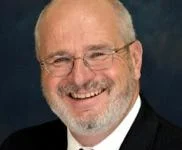Indiana Forward Wants To Make 2019 The Year A Hate Crime Law Passes
By Erica Irish
TheStatehouseFile.com
INDIANAPOLIS—There’s little doubt the hate crimes discussion in Indiana will dominate conversation through the next legislative session.
And a coalition of several hundred state business leaders and interest groups want to see to it that lawmakers do more than talk by upping the pressure on them to finalize a bill that better defines and punishes bias crimes.
Earlier in December, the United Way of Central Indiana announced the coalition as the Indiana Forward movement, a campaign designed to lobby for a bias crimes bill in 2019. The self-described “broad and bipartisan group†encompasses voices from the state’s faith communities, colleges and universities, nonprofits, employers and more.
Mike Leppert, who serves as Indiana Forward’s campaign manager, and Mindi Goodpaster, United Way of Central Indiana’s vice president of public policy, are championing the effort, which includes support from the likes of Indiana giants Eli Lilly and Company, Salesforce Inc. and Cummins Inc. Its executive committee is dotted with names from the Indiana Youth Group, the Muslim Alliance of Indiana and the state’s American Civil Liberties Union.
Leppert said Tuesday the coalition is pushing for specific language in the law that would protect people targeted on the basis of their race, ethnicity, religion, national origin, sex, disability, gender identity or sexual orientation and that would push courts to further consider sentence aggravators or enhancements in such crimes. The group views these elements as “non-negotiable,†he added.
A sentence aggravator would allow a judge to increase the severity of a sentence within a certain crime classification. This is determined if more than half of the evidence indicates an underlying motive, such as attacking a person because of their race.
Sentence enhancements are similar but allow the crime to be charged at a higher level, such as moving a charge from a Level 1 felony to a Level 2 felony. Such a decision must be determined beyond a reasonable doubt.
Indiana currently provides a definition for bias crimes in general terms, noting any crime in which a person, group of people or property was harmed or damaged due to its association with a “color, creed, disability, national origin, race, religion, or sexual orientation,†granting those involved in the judicial system a basis to determine aggravating factors.
The Indiana Supreme Court also determined in a 2003 case, Witmer v. State, that judges can consider a victim’s characteristics to justify an enhanced sentence. In this case, the court determined a murder victim, 17-year-old Sasezly Richardson, was targeted because she was black and used this conclusion to justify a longer sentence for the perpetrator, Alex Witmer.
Sen. Mike Young, R-Indianapolis, and former Senate President Pro Tem David Long, R-Fort Wayne, used this ruling and Indiana courts’ virtually limitless power in considering case evidence as justification for blocking last session’s hate crimes bill, which never received a vote.
While Leppert agreed these powers exist, he said case decisions show they are rarely used.
“What’s lacking is the state’s response to things that are illegal and intolerable,†Leppert said.
Goodpaster and Leppert added the state has little to lose by enforcing Indiana Forward’s legislation, which can only be enacted when a crime occurs.
“The biggest misconception is that we’re trying to control thoughts or beliefs. Someone has to commit a crime to be punished,†Goodpaster said. “It is not a crime to think or believe, but as soon as you commit a crime against a person, a group of people or their property, this law will affect you.â€
“If I were them, I would pass this as soon as possible,†Lepper added, noting that extended support from Gov. Eric Holcomb is placing considerable weight on Republican leaders in both chambers.
Holcomb first called for legislation in a tweet this summer after a Jewish temple in Carmel, Congregation Shaarey Tefilla, was vandalized with anti-Semitic symbols. He further outlined the necessity of the law in his legislative agenda presented earlier this month, where he modeled his recommendation on the state’s existing workplace harassment prevention policy.
“I fully appreciate the ‘where does the list stop’ discussion,†Holcomb said Tuesday, referring to prior hate crimes law debates. “However, we’ve had an employment policy in place in this office since 2005 that’s worked just fine, and so I didn’t want to take a step back from that.â€
The harassment policy includes protections for all of the characteristics Indiana Forward wants to be included in a bias crimes law, as well as guidance for those harassed for their national origin, ancestry and veteran status.
“It’s not just the right thing to do, it’s long overdue. I’ll take some responsibility for it not being checked off the list already,†Holcomb said.
The Indiana Forward website provides additional information about the group’s 2019 policy goals. Lawmakers will reconvene for the legislative session on Jan. 3.
FOOTNOTE: Erica Irish is a reporter for TheStatehouseFile.com, a news website powered by Franklin College journalism students. Mike Leppert writes a column for TheStatehouseFile.com.





